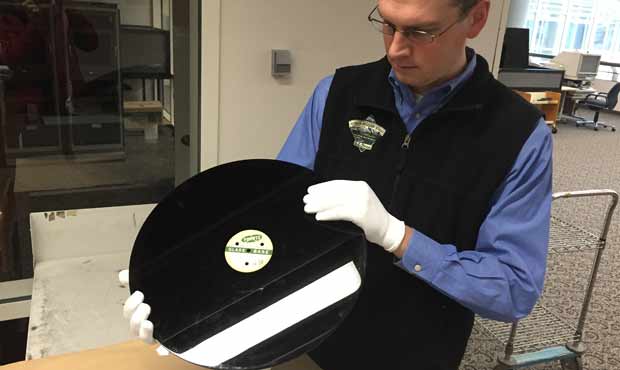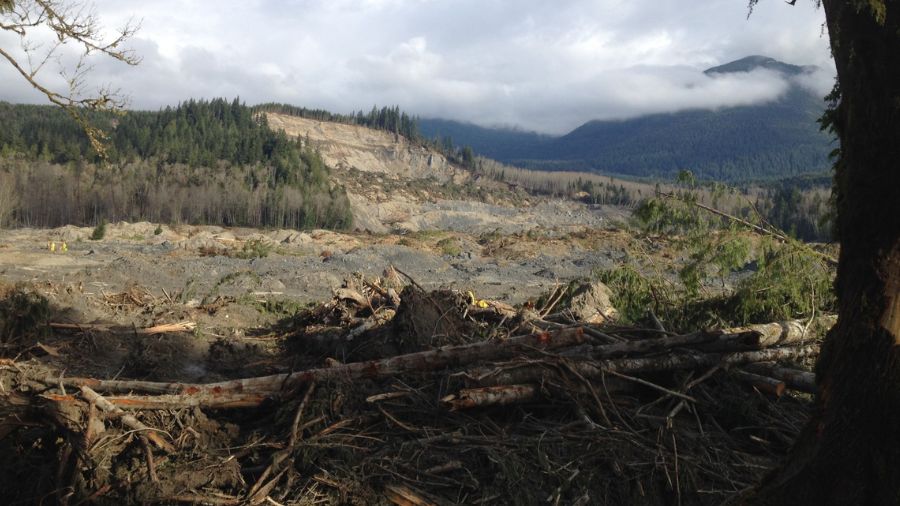KIRO Radio accidentally saves American history
Mar 1, 2016, 10:11 AM | Updated: Oct 18, 2017, 7:24 am
One of the most important events of the 20th century was World War II. The Cold War that followed and many of the national borders that exist to this day were largely created during that deadly, years-long conflict from the late 1930s to 1945.
An expert speaking at the Library of Congress at the first-ever Radio Preservation Task Force Conference described how one of the most important tools for understanding World War II is available to researchers only because of an “accident” at KIRO Radio more than 70 years ago.
During his keynote address last week in Washington, DC, longtime archivist and librarian Sam Brylawski spoke of KIRO Radio’s role in saving a priceless audio record of American history.
Related: Mysteries of Seattle’s old “Doughboy” remains
It was a case of “accidental preservation,” Brylawski told the audience of more than 200 radio history scholars from around the US and Canada, that resulted in the creation of a nearly complete archive of CBS news broadcasts during World War II.
“KIRO is the station in Seattle that cut lacquer discs to timeshift,” Byrlawski said, explaining how the scheduling of live broadcasts of CBS Radio’s news coverage was aimed at the Eastern time zone, which was not convenient for West Coast audiences. KIRO, as Brylawski described, violated network radio policies to make recordings of news programs on giant, 16-inch diameter discs, and then play them back a few hours later at times that were more convenient to Seattle-area listeners.
“As a result, those lacquer discs are the closest thing to a complete record of CBS World War II news,” Brylawski said. And they were saved, “only because the station, probably against its [network affiliation] agreement with [CBS chairman] William Paley, was timeshifting.”
Speaking with a reporter after his speech, Brylawski described how the preservation of the KIRO materials happened somewhat unintentionally, and what it means for historians. “Accidentally,” he said, “we have the best archive extant archive of CBS News during World War II.”
The full story is long and a little complicated. The original 16-inch discs were recorded off the “network feed” from CBS in New York at the old KIRO studio in the basement of the Cobb Building at Fourth Avenue and University Street in downtown Seattle. Rather than thrown away, the discs were moved, perhaps gradually or in small batches, to the KIRO transmitter site on Vashon Island. That’s where University of Washington professor Milo Ryan “discovered” them in the 1950s, along with help from former KIRO station manager Loren Stone.
In 1957, the thousands of discs were moved to the University of Washington, where Professor Ryan secured funding from CBS and led the effort to make copies on reel-to-reel tape and to create a catalog. Engineers from both KCTS TV and KUOW-FM, when both of those stations were still on campus, assisted with technical aspects of making the recordings.
In the catalog written by Milo Ryan and published by University of Washington Press in 1963, Ryan notes how if reusable recording tape had been available to KIRO during World War II, the archive might not exist. Engineers, Ryan says, may have simply erased and reused the same tape every day. Because 16-inch discs could only be recorded on once, re-use wasn’t an option.
The discs were moved from the University of Washington to the National Archives and Records Administration’s (NARA) facility on Sand Point Way and ultimately moved to NARA’s archival facility in College Park, Maryland in 2002 or 2003. The tapes remain at the University of Washington Library, where they’re accessible to researchers, and where they’re gradually being made available online.
At the National Archives in Maryland, Dan Rooney is the NARA employee who oversees what’s known as the “Milo Ryan Phonoarchive.” On a recent morning, he donned a white glove and showed a reporter a box full of original 16-inch KIRO discs.
The second disc Rooney carefully removed from the acid-free archival box was labeled, in pencil, “Richland B’cast, Atomic Bomb, 8/6/45.” This would’ve been just hours after the world learned of the existence of America’s atomic bomb. It’s also when Seattle residents learned about the massive secret federal project at what was called the Hanford Engineering Works in eastern Washington.
“In terms of the historical significance,” Rooney said, “one of the most significant things [about the Milo Ryan Phonoarchive] is that it’s really like this day-by-day accounting during the World War II period. Bombings in London, on the ground reporting going on, there’s [Edward R.] Murrow broadcasts in there, prominent journalists.”
Sam Brylawski minces no words in his assessment of the value of the Milo Ryan Phonoarchive. “It’s an extraordinarily important document of American radio history,” Brylawski said, “or, I should say, journalism history and American history.”
While reluctant to speak ill of artifacts of visual history, Brylawski believes audio is a powerful tool for understanding the past. “At this conference, a lot of people have spoken of the importance of actually hearing a voice from the past,” Brylawski said. “And how much more effective [sound] is, in terms of understanding the person and the times, than a photograph.”
Brylawski also says that KIRO deserves recognition for what the station did during World War II, even it was something of an accident.
“KIRO should get a gold star for ‘inadvertent archiving,'” Byrlawski said. “That wasn’t their intention, but thank God they did it.”



















